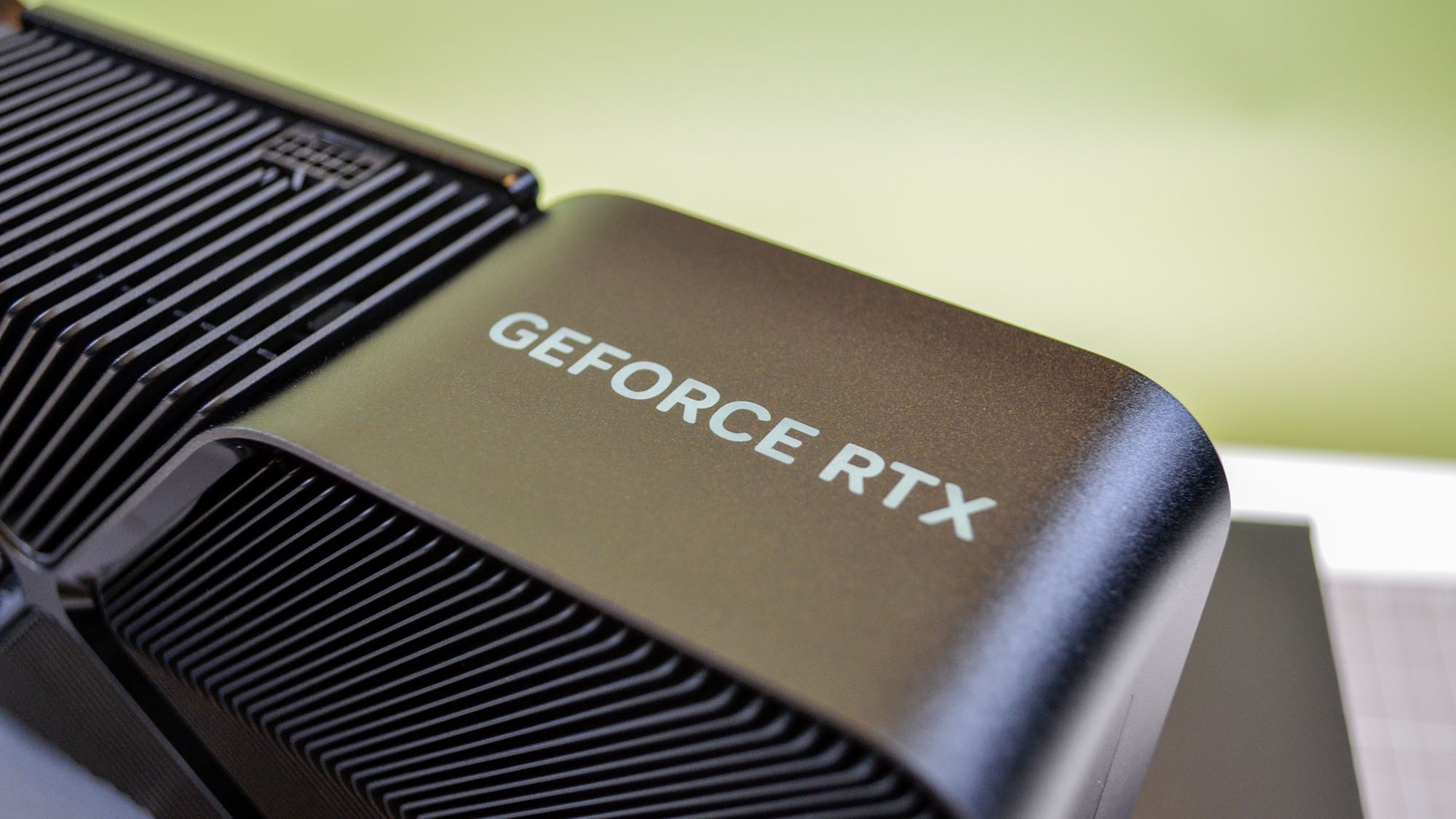Nvidia RTX 5080 leak gets some PC gamers worried that Team Green hasn’t learned from RTX 4080 fiasco
Deja-vu for the xx80 GPU? Let’s hope not, and we feel on balance, it’s far from time to panic yet

A fresh piece of speculation on Nvidia’s next-gen Blackwell GPUs has got some folks concerned about how the RTX 5080 might turn out – bringing back bad memories of the fumbled RTX 4080 launch (with that disappointing spec, and the whole faux pas with the canceled 12GB version).
Kopite7kimi, a regular leaker on the topic of graphics cards on X (formerly Twitter), stoked this chatter with the revelation that Blackwell’s GB203 chip (in the RTX 5080) will be paired with a 256-bit memory bus, and further down the range, GB205 will run with a 192-bit bus.
Thanks as always. GB203 is 256-bit and GB205 is 192-bit.March 12, 2024
As ever, approach this assertion with caution – it’s just a rumor. VideoCardz, which flagged this up, asked for confirmation that there’d be “no 384-bit GPU in [the] Blackwell family” to which the leaker replied that “it should be like this now.”
So, that’s not a definitive statement of course, though no leak ever is – and even if it’s Nvidia’s plan at this point, that could change. (Remember, the RTX 5090 is the only Blackwell GPU supposedly due to launch this year, late on, and the RTX 5080 won’t turn up until 2025 – so it's still some way out if the rumor mill is right).
Analysis: What does this mean for the RTX 5080 then?
Much of the focus with Blackwell rumors thus far has been on the idea that the flagship RTX 5090 will have a 512-bit memory bus (much beefier, 33% wider in fact, than the RTX 4090). This is the graphics card based on the GB202 chip.
GB203 will be the chip down from that, the engine of the RTX 5080 as mentioned, with the assumption having been made that this would be a 384-bit bus, and that it’d be upgraded from the RTX 4080 which has a 256-bit bus. (After all, the RTX 5090 is making a big leap from 384-bit to 512-bit, in theory, and all performance rumors point to it being a good candidate for our roundup of the best graphics cards).
Apparently, that isn’t the case, and with a halved memory bus compared to the flagship Blackwell graphics card, this has some PC gamers worried that maybe the RTX 5080 will be a sizeable step down on the performance front from the 5090.
Get daily insight, inspiration and deals in your inbox
Sign up for breaking news, reviews, opinion, top tech deals, and more.
However, we need to be careful here. Firstly, this could be inaccurate or Nvidia could change its mind, as already noted. Secondly, if the decision has been made to maintain a 256-bit bus with the xx80 model, Nvidia may have other improvements on the memory side of the equation that this fits in with. (This revelation has also been taken as a hint that Nvidia is running with 16GB of VRAM with the RTX 5080).
Whatever the case, the spec that Nvidia shoots for will have to equal, or slightly better, the RTX 4090, for it to make sense – and we can still fully expect that to happen. Or, the pricing might be adjusted, which could turn out even better for the consumer – though to be fair, we find it hard to envisage a more affordable xx80-class GPU.
In short, we’d advise you not to worry about what’s flying around the rumor mill at the moment. Nvidia will make the relative value proposition – performance per buck for the RTX 5080 – make sense compared to its predecessor, simply because it has to do so. It’s exactly the RTX 4080 launch being so badly judged which should – we hope – make sure that Nvidia ensures that the RTX 5080 won’t be viewed in the same light.
However, that doesn’t preclude the possibility that the Blackwell successor to the RTX 4080 could be very slightly worse off relatively, of course. All of this remains speculation, and we’ll need to wait until later in the rumor cycle to see if these theories around the lesser spec memory bus persist.
You might also like
Darren is a freelancer writing news and features for TechRadar (and occasionally T3) across a broad range of computing topics including CPUs, GPUs, various other hardware, VPNs, antivirus and more. He has written about tech for the best part of three decades, and writes books in his spare time (his debut novel - 'I Know What You Did Last Supper' - was published by Hachette UK in 2013).